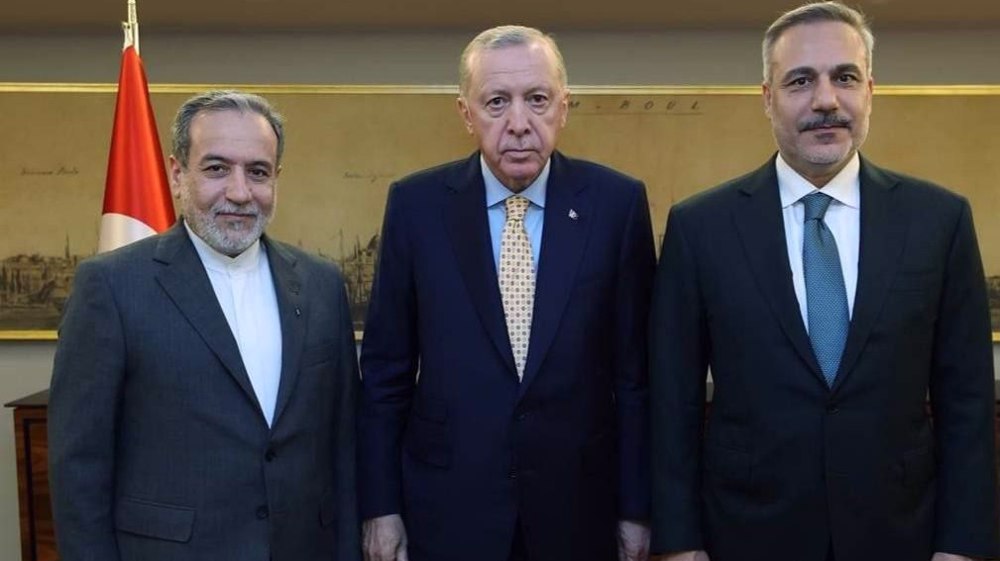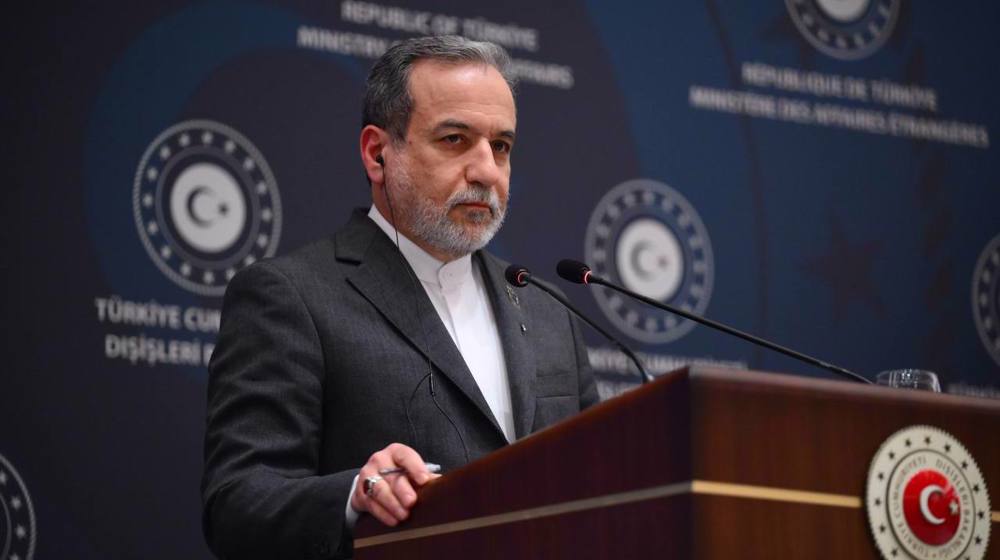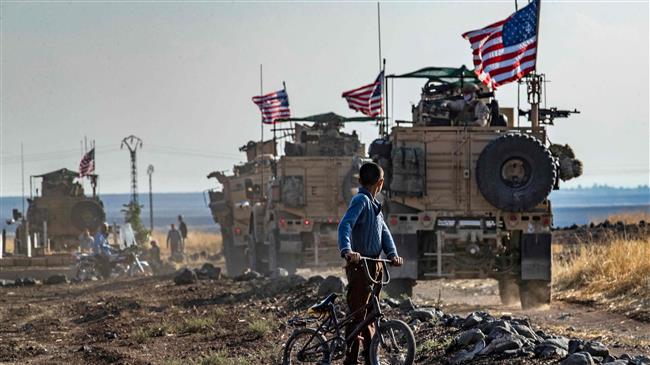YPG terrorists still not fully cleared from Syria safe zone, Erdogan says
Turkish President Recep Tayyip Erdogan says militants from the Kurdish People's Protection Units (YPG) have not fully withdrawn from border areas of the so-called safe zone in northern Syria as specified in the agreements with Russia and the United States, and that US forces are still carrying out joint patrols with the militants.
“We know that there are still terrorists in the planned safe zone. These areas are not cleared of terrorists. Terrorists have not been taken out of either (the northwestern Syrian cities of) Tal Rifaat or Manbij,” Erdogan told a parliamentary group meeting of the ruling Justice and Development Party (AK Party) in the capital Ankara on Tuesday.
He added that the militants beyond the safe zone borders were organizing attacks on Turkish security forces.
Terrorists still in planned safe zone in northern Syria: Erdoğanhttps://t.co/1epDUP6flU pic.twitter.com/n3lVJtA2Va
— Hürriyet Daily News (@HDNER) November 5, 2019
“We will not be an onlooker to this situation. We will do what is necessary as we did before.
“Turkey will continue its fight until the last terrorist is neutralized in Turkey, Syria and Iraq,” Erdogan said.
The Turkish president highlighted that Ankara would abide by its deals as long as Washington and Moscow kept their promises.
Erdogan said that US forces were still holding joint patrols with the YPG militants inside the 30-kilometers border strip from which the Kurdish forces were supposed to withdraw.
“How can we explain America holding patrols with terrorist organizations in this region even though they made the decision to withdraw? This is not in our agreement,” he said.
He also criticized the US for being insincere regarding Turkey’s anti-terror efforts.
"We have been subjected to a hidden embargo for fighting against terrorists,” Erdogan said, referring to some western countries' refusal to sell weapons and other devices in the wake of the Turkish cross-border incursion into northern Syria.
Turkey, Russia conduct 2nd round of joint Syria patrols
Also on Tuesday, Turkish and Russian troops in armored vehicles conducted the second round of joint patrols in northern Syria near the Kurdish-populated town of Kobani, officially Ayn al-Arab, under a deal that has forced YPG militants away from Turkey's border.
According to Turkey's Defense Ministry, Turkish and Russian military elements and unmanned aerial vehicles (UAVs) participated in the patrol, which lasted two hours.
Within the framework of the agreement reached with the Russian Federation in Sochi on October 22, 2019; the second joint land patrol began with the participation of Turkish and Russian military elements and UAVs in the Ayn al Arab region to the east of the Euphrates.#MSB #TSK pic.twitter.com/2UUZaDV6G3
— T.C. Millî Savunma Bakanlığı (@tcsavunma) November 5, 2019
Syrian army starts deploying units to Qamishli
Meanwhile, Syria’s official news agency SANA reported that units of government forces are being deployed to the eastern countryside of the northeastern Syrian city of Qamishli on the border with Turkey in the face of a cross-border incursion by Turkish army troops and their allied militants against Kurdish YPG forces.

On October 22, Russian President Vladimir Putin and his Turkish counterpart signed a memorandum of understanding that asserted YPG militants must withdraw from the Turkish-controlled "safe zone" in northeastern Syria within 150 hours, after which Ankara and Moscow will run joint patrols around the area.
The announcement was made hours before a US-brokered five-day truce between Turkish and Kurdish-led forces was due to expire.
On October 9, Turkish military forces and Ankara-backed militants launched a long-threatened cross-border invasion of northeastern Syria in a declared attempt to push YPG militants from border areas.
Ankara views the US-backed YPG as a terrorist organization tied to the homegrown Kurdistan Workers' Party (PKK), which has been seeking an autonomous Kurdish region in Turkey since 1984. The YPG constitutes the backbone of the Kurdish-dominated so-called Syrian Democratic Forces (SDF).
Palestinian activist in ICE detention 'missing' after medical emergency
Any enemy miscalculation will be met with ‘unprecedented’ response: Iran army chief
VIDEO | Press TV's news headlines
Hamas urges mediators to curb Israel’s violations of Gaza ceasefire
Islamic Revolution anniv. rallies to span 1,400 cities, draw 7,700 media personnel: Official
Palestinian journalist and Press TV contributor briefly arrested by UK police
Iran advises US to act independently of ‘destructive’ Israeli influence amid nuclear talks in Oman
VIDEO | 'Not in my name': Pro-Palestinian rally held in Sydney against Israeli president's visit
















 This makes it easy to access the Press TV website
This makes it easy to access the Press TV website